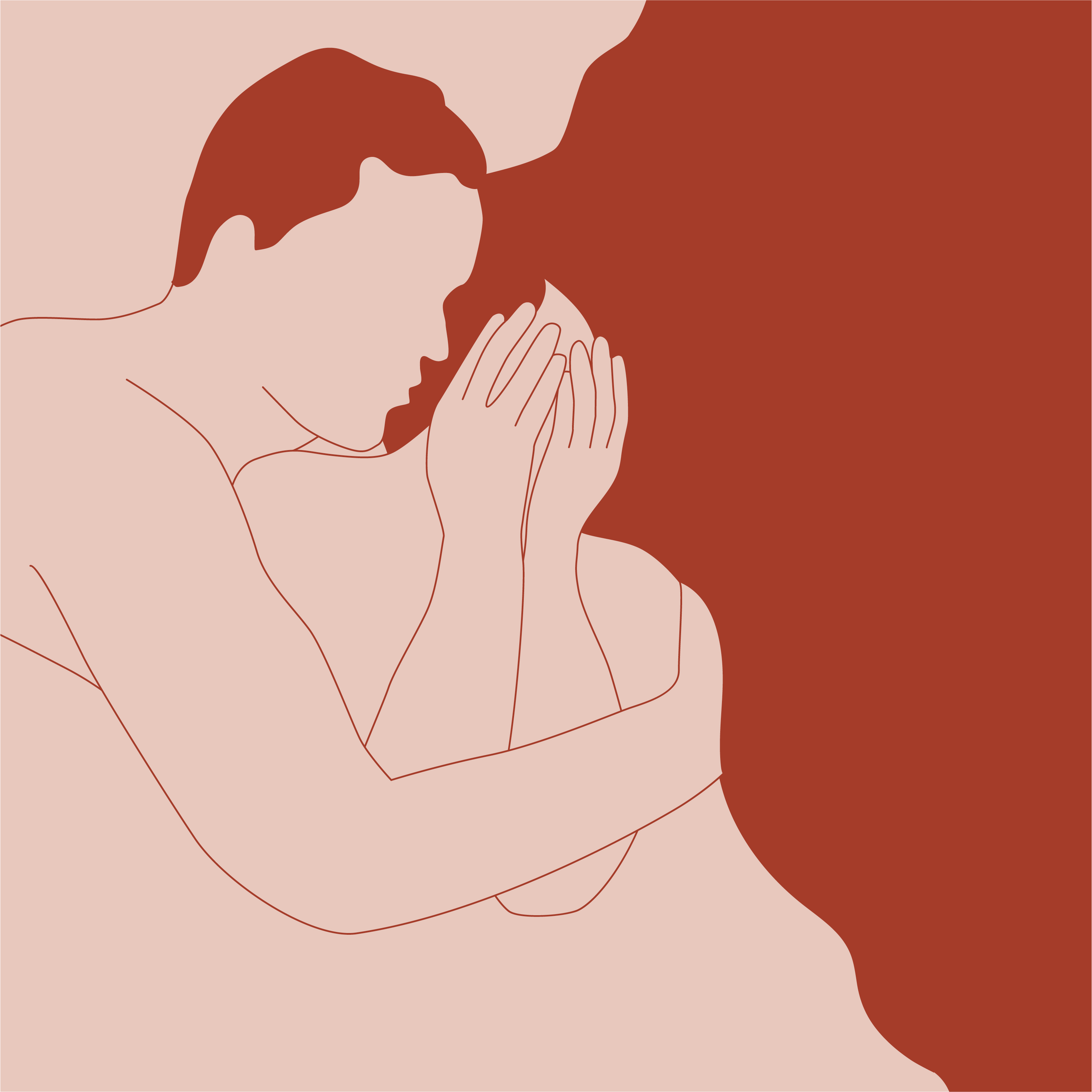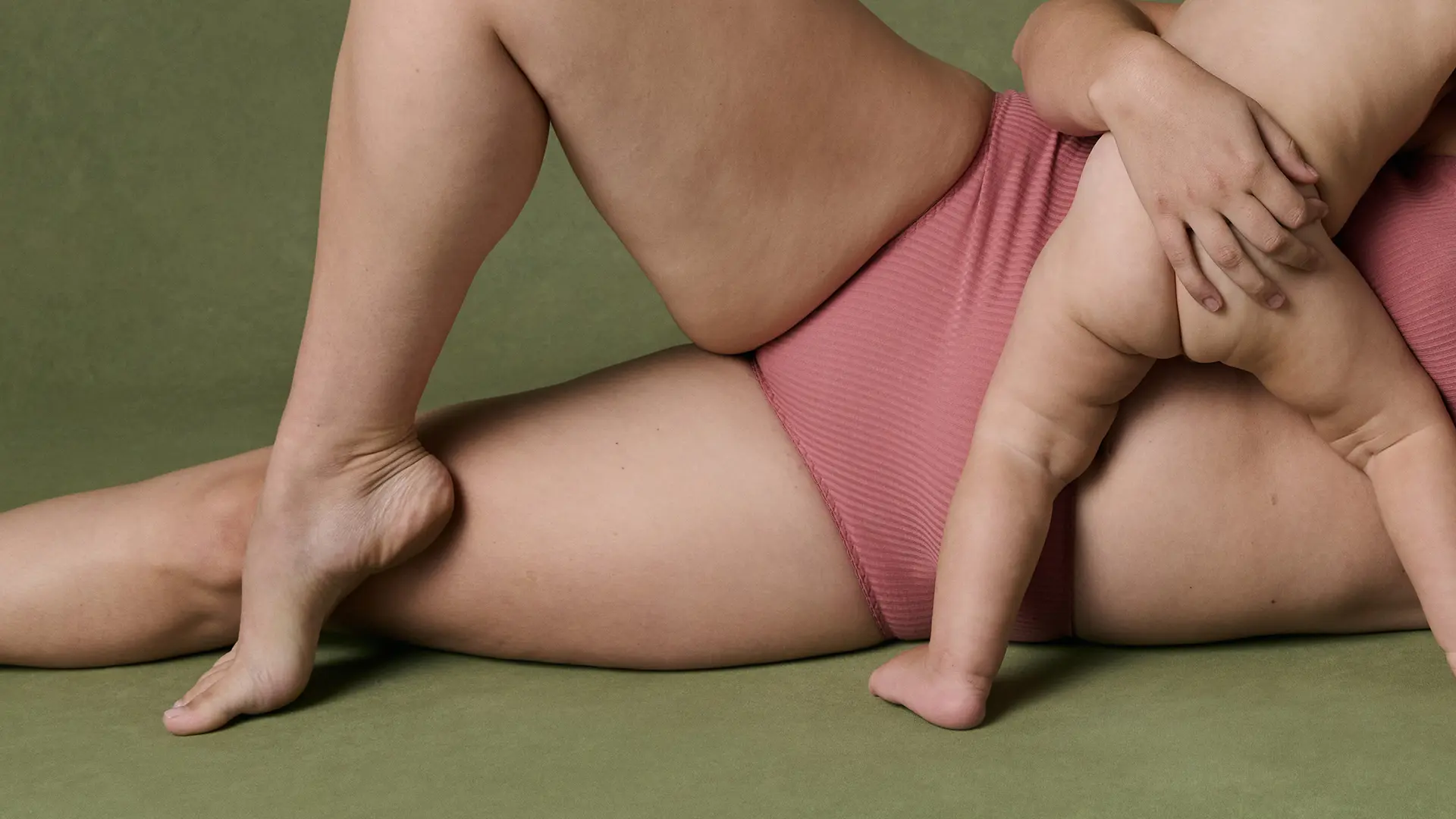Jul 01, 2024
POSTPARTUM PERIODS: WHAT YOU NEED TO KNOW
Childbirth marks a profound moment in your life, accompanied by significant hormonal shifts. After nine months without a period, it's natural to wonder when your menstrual cycle will resume and how it might change post-birth.
When Will I Get My First Postpartum Period?
Navigating the timing of your first postpartum period is a deeply personal journey, and it's perfectly natural to have questions or concerns about it. Following the birth of your child, you will experience lochia, a postpartum discharge often mistaken for a period, made up of blood, mucous and uterine tissue. This discharge starts shortly after giving birth, initially appearing as dark red bleeding that typically lasts between two to six weeks. Over time, it gradually transitions to lighter shades of pink and eventually to a yellowish-white colour.
As you anticipate the return of your menstrual cycle, it's important to remember that every body is different and there's no one-size-fits-all timeline. For some, menstruation may resume as early as 4 to 6 weeks after childbirth. However, individual factors such as lactation, your menstrual regularity before pregnancy, the use of birth control methods, and your age can all play a role in determining when your period returns.
Please know that it's okay to have questions or uncertainties during this time. Your body is undergoing significant changes, and it's important to listen to its signals and seek support if needed. You're not alone in this journey, and there are resources available to provide guidance and reassurance along the way.
Factors Affecting Postpartum Period Timing
The postpartum period can be shaped by several factors, each contributing to your unique experience as you journey through this significant time of change.
- Lactation: Breastfeeding can delay the return of your period, due to hormonal influences. Regular breastfeeding sessions may naturally suppress ovulation, giving you more time before periods resume. The hormones prolactin and oxytocin support this process.
- Previous Period Regularity: If you had irregular periods before pregnancy, you might notice variations in the timing of postpartum periods. Your body's unique rhythm may influence this transition.
- Birth Control Methods: The choice of birth control post-pregnancy can have an impact on your period regularity. Hormonal contraceptives, for example, may gently regulate periods, while certain methods like intrauterine devices (IUDs) can cause changes in bleeding patterns.
Will my period look the same as it used to?
After your period returns postpartum, it’s important to understand that it might not resemble what you're used to. You might observe variations in its colour, volume, and consistency. This is entirely normal and nothing to worry about. Remember, these changes are merely a testament to the incredible journey your body has just undergone. Here's what you can anticipate as your body adapts and your menstrualcycle resumes its rhythm:
- Colour consistency: Your postpartum period might initially appear darker or lighter than usual due to hormonal shifts, but rest assured, it should gradually return to a more familiar range over time. Your body has been through so much, and it's incredible how it adapts and bounces back.
- Volume: Your period's volume may vary, typically starting heavier due to the shedding of extra uterine lining and then stabilising to a level similar to pre-pregnancy. Your body is finding its rhythm, and fluctuations in volume are completely normal.
- Consistency: Initially, you may notice clots or thicker blood during your postpartum period, which can be a bit alarming. However, as your cycle regulates, this should gradually reduce, and your flow will become smoother without significant clotting. Your body is gently adjusting to this new phase, and these changes are part of the beautiful journey of motherhood. Trust in your body's wisdom and know that you're not alone in this.
Checking for Ovulation Post-Pregnancy
Just like with any period, it all starts with ovulation - the moment when an egg is released from the ovary, signalling the potential return of fertility and menstruation. Keeping track of ovulation postpartum can offer valuable insights into when your period might return. Tools such as ovulation predictor tests, monitoring basal body temperature, and using fertility tracking devices can assist in identifying ovulation patterns and fertility windows, helping to guide you through this transition.
When should I see a Health Professional?
While postpartum periods typically follow a natural course, there are certain signs that may require medical attention. Rest assured, there is support available whenever you need it, so don't hesitate to reach out if you have any concerns or questions.
- Prolonged Absence of Periods: If menstruation has not resumed after 3 months after you stopped breastfeeding, consult a healthcare provider to rule out underlying issues.
- Abnormal Bleeding: Excessive bleeding, large clots, or bleeding between periods should prompt a medical evaluation.
- Intense Cramping or Fever: Severe cramping accompanied by fever may indicate an infection or other health concern requiring prompt assessment.
- Changes in Patterns: Noticeable changes in period flow, such as sudden heaviness, persistent irregularities, or unusual symptoms, merit discussion with a healthcare provider.
- Hormonal Concerns: Significant shifts in hormonal balance post-delivery, including mood swings or other hormonal symptoms, should be addressed with medical guidance for appropriate management.
Prioritising postpartum health means staying informed about the changes your body undergoes and seeking professional care when needed. Remember, your body has just gone through a lot, so it's important to be gentle with yourself and listen to its signals.
Open communication with healthcare providers ensures comprehensive postpartum care, promoting overall well-being during this transformative phase of parenthood.
Blogs

Jun 08, 2022
EXPLORING PERIOD CARE IN CULTURES AROUND THE WORLD
Our TOM Talks panelist Sabina McKenna explores how different cultures around the world approach period care.
Read More
Jun 08, 2022
STOP APOLOGISING FOR HAVING YOUR PERIOD
Our TOM Talks panelist Mel Mason talks about the importance of not apologising for having your period.
Read More
Jun 07, 2022
STRESSED? NOT SLEEPING? TRYING TO CONCEIVE?
TOM Talk's panelist Georgia Hartmann discussed the links between stress, sleep and fertility.
Read More
Jun 07, 2022
STRESS AND HOW IT AFFECTS YOUR SEX DRIVE
Certified sex coach Georgia Grace is here to unpack the link between stress and sex.
Read More
